Indigenous Advisory Committee Progress and Impact Report 2023
Indigenous Advisory Committee Progress and Impact Report 2023 [PDF 13339 KB]
Indigenous Advisory Committee
Progress & Impact Report 2023

Copyright/Permission to Reproduce

About this Report
The journey of the Canada Energy Regulator (CER) Indigenous Advisory Committee (IAC) continues to unfold. As the IAC moves into its third year, this report looks back at the IAC’s impact between April 2022 to March 2023.
Using its guiding principles, the IAC worked closely with the Board of Directors and CER senior leaders – providing advice and guidance on many activities and initiatives. The IAC concentrated its efforts in alignment with the IAC Work Plan 2021–24.
This report details the continued impact that the IAC has on the CER’s strategic direction and work.
Table of contents
- About the IAC
- About the CER
- Progress against work priorities
- The year ahead
- Appendix – Detailed update on progress against work priorities
- Detailed update on progress against Relationships and Governance
- Detailed update on progress against UN Declaration
- Detailed update on progress against Cultural competency and change management
- Detailed update on progress against Indigenous Peoples’ Involvement in Regulatory Oversight
- Detailed update on progress against Crown Consultation and Accommodation
Quotes from leadership
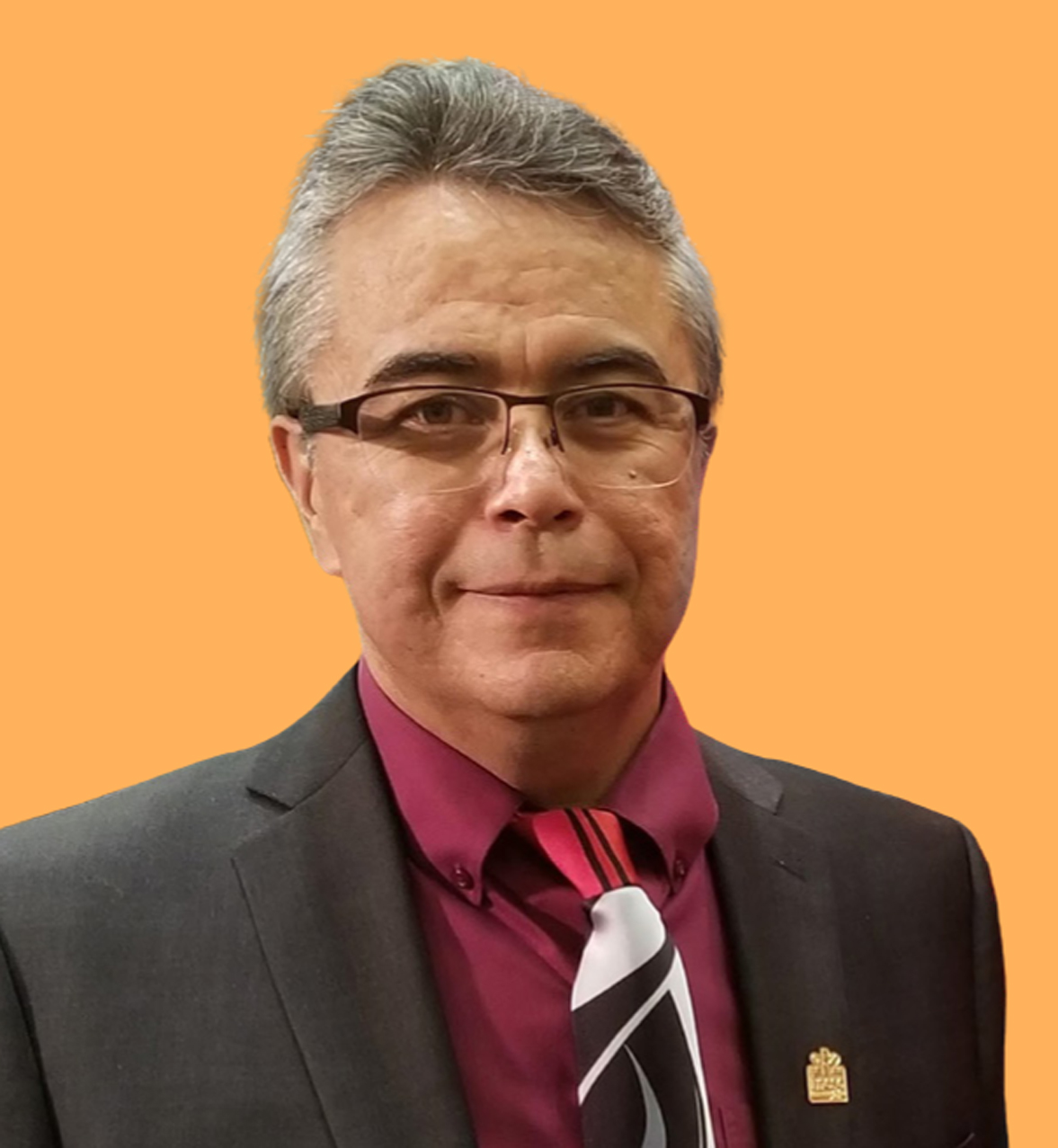
Tribal Chief Tyrone McNeil, Chairperson
Since the inception of the IAC, the CER Board and senior executive have embraced structural and systemic changes to better align with Indigenous world views with a deepening understanding of First Nation, Inuit and Métis rights as they pertain to the mandate of the CER.
With the tremendous capacity IAC members have along with the willingness and courage of the CER to explore and embrace change I am confident rights holders will start feeling the results of those changes in the next short while.
– Tribal Chief Tyrone McNeil, Chairperson

Kaella Marie Earle, Vice-Chairperson
The CER has seen exceptional growth in the past few years, with thoughtful focus on building cultural intelligence and systemic change in recognition of healing relationships with First Nation, Inuit and Métis peoples.
Increased capacity within the IAC and the CER has been vast, including First Nation leadership at the CER’s executive level and many more First Nation, Inuit and Métis employees. While the building of cultural intelligence continues, this new capacity positions the IAC to focus our work plan (within the circle of the UN Declaration) over the next couple of years in a way that is more proponent and project impact strategy specific, prioritizing Section 35 of the Canadian Constitution, jurisprudence, inherent rights, and the honouring of historical and modern treaties.
– Kaella-Marie Earle, Vice-Chairperson

About the IAC
The IAC was established in 2020 and charted a new path forward for the CER fulfilling a requirement of the Canadian Energy Regulator Act (CER Act). IAC membership reflects Canada’s diversity of Indigenous communities, languages, genders, geographies, and skills and expertise. IAC membership includes one directly nominated member from each of the Assembly of First Nations, Inuit Tapiriit Kanatami (ITK), and the Métis National Council.
The IAC advises the CER on building a new relationship with Indigenous Peoples. They also advise on strategic, systemic, policy, and program development relevant to the CER mandate, including the CER’s oversight, expectations, and requirements of regulated industry.
The IAC offers guidance on the integration of:
- Indigenous perspectives, knowledge, teachings and values;
- Use of the land and water;
- Oral traditions; and
- Indigenous worldviews in the regulation of CER-regulated energy infrastructure.
Nearly three years on, the IAC has solidified itself as a vital part of the CER’s governance structure. During this time, the IAC, the CER Board of Directors (Board) and senior leaders have created strong individual and governance-based relationships. These relationships laid the foundation for trust and open communication that builds common ground and cross-cultural understanding.
The IAC operates at a strategic level but with a clear line of sight between the advice they provide and tangible impacts on the ground. The IAC meets four times a year, two of those meetings occur with the CER’s Board; with whom the IAC co–develops certain initiatives like the co-endorsed CER Statement on Reconciliation. Outside of the quarterly meetings, deeper engagement between the IAC, Board, and CER leadership.
The IAC offers strategic, high-level advice to the Board with a national scope. The IAC does not represent rights holders or replace Crown consultation with impacted Indigenous Peoples. The IAC is not a decision-making body and does not engage in CER operational matters. Nor does the IAC provide advice on any particular decision made by the CER Commission. However, the IAC does offer their insights and reflections to influence the work of the CER across the country.
Note: the CER continues to engage with the ITK to seek a nominee from their organization to take part in the IAC. This was a membership gap as of August 2022.
IAC Members
Throughout the course of the year, April 2022 through to March 2023, IAC Members were:
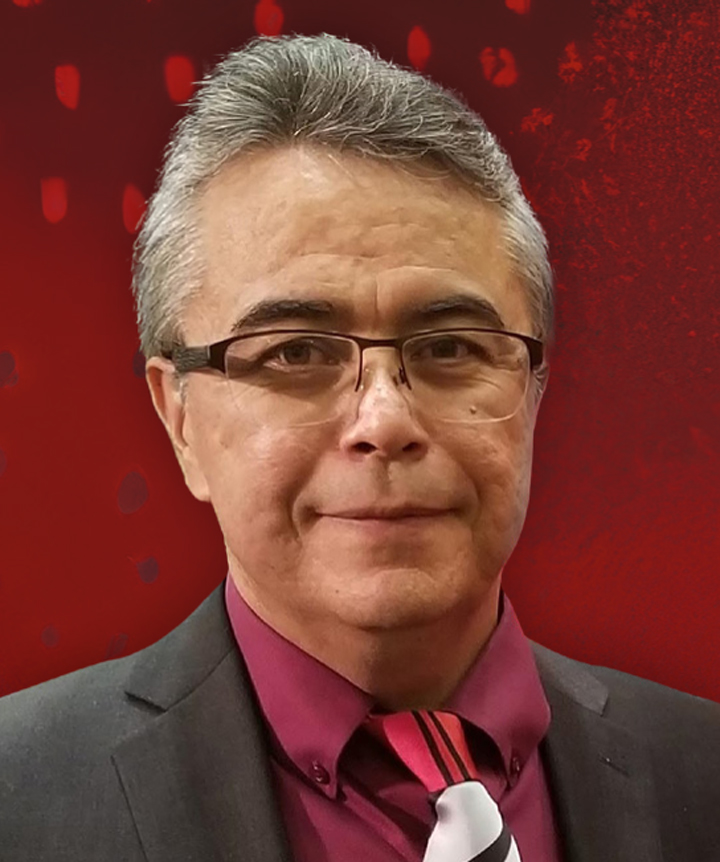
Tribal Chief Tyrone McNeil, Chairperson

Kaella-Marie Earle, Vice-Chairperson
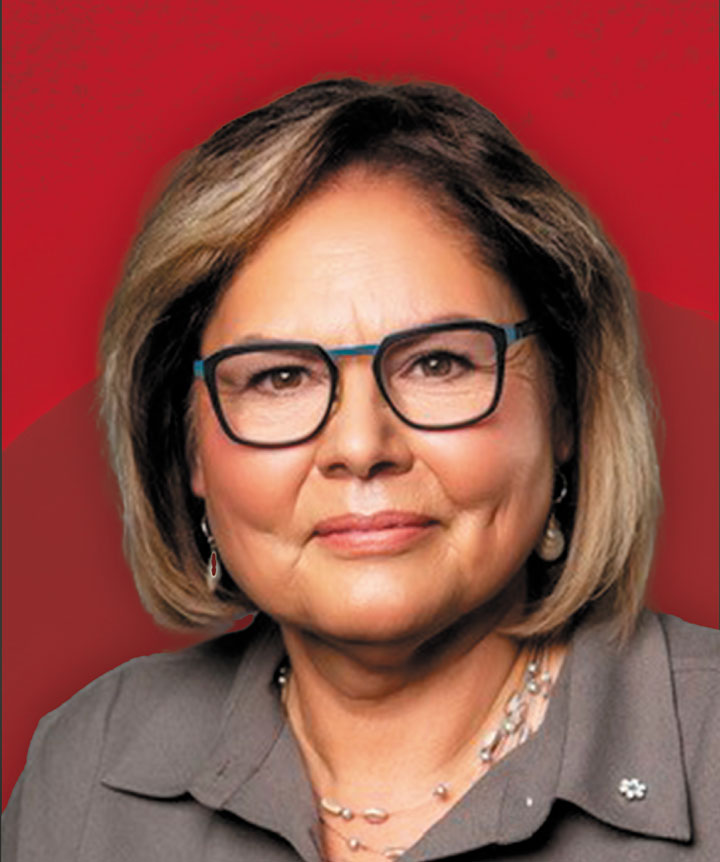
Dr. Marie Delorme
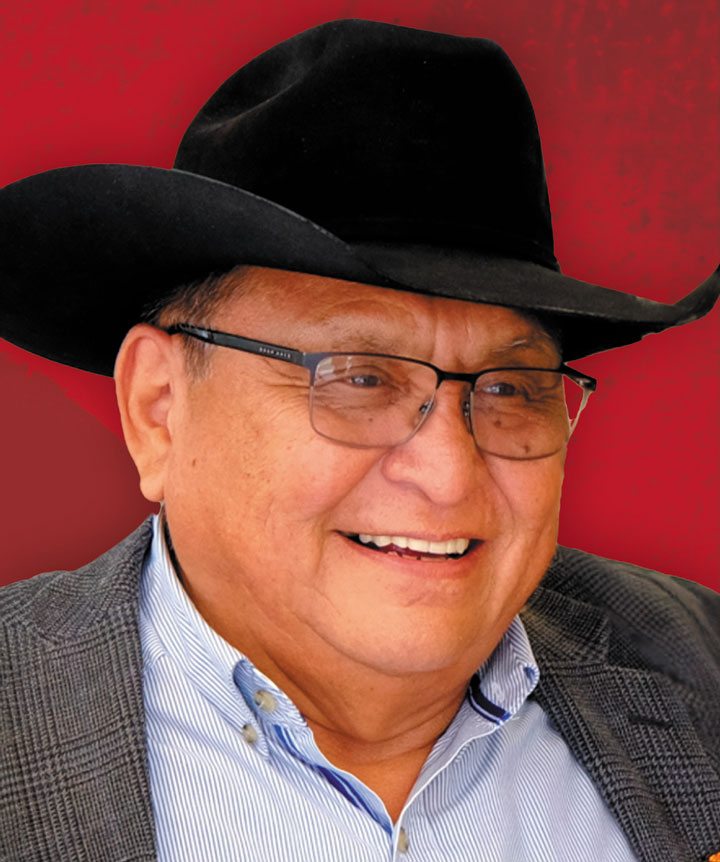
Chief Harvey McLeod

Scott Patles-Richardson

Chief Matthew Peigan

Marci Riel

Tristan Zachow
(joined in November 2023)

Nuka Olsen-Hakongak
(term concluded in July 2022)
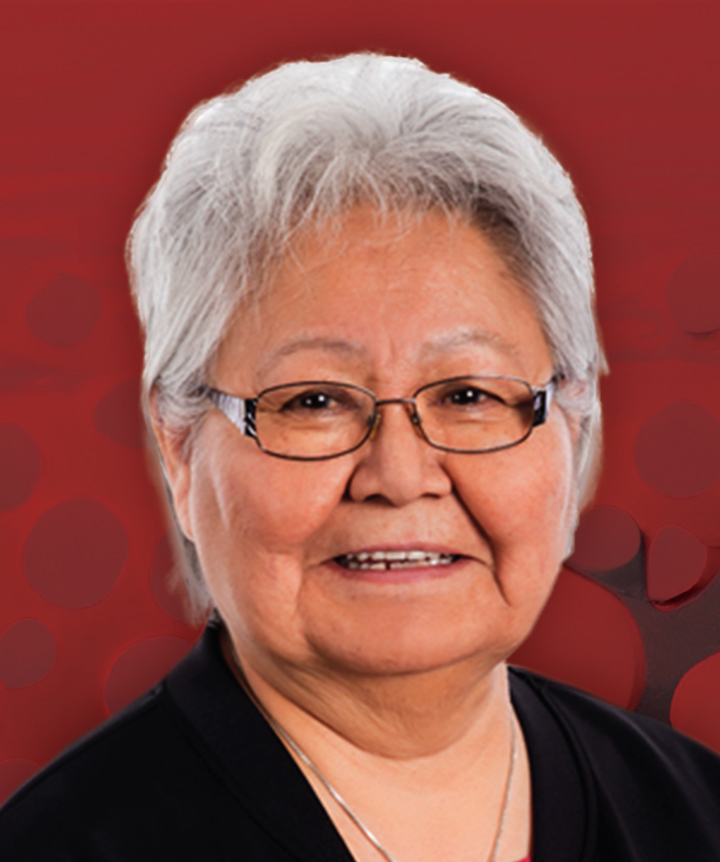
Judy Gingell
(term concluded in July 2022)
Biographies of IAC Members are available on the CER website.

“The IAC was established to provide strategic advice to the Board on transforming the CER’s relationship with Indigenous Peoples.
The conversations around the table over the last three years have contributed an Indigenous perspective and have had a direct influence on our work.
The ongoing partnership with the IAC has had a profound impact on how we operate as a regulator, particularly in thinking through the implementation of the UN Declaration on the Rights of Indigenous Peoples.
We are fortunate to have such an amazing group of Indigenous leaders to support the CER’s work.”
Cassie Doyle,
Chairperson of the Board of Directors
IAC Work Plan 2021–24
The IAC has an ambitious three-year work plan, co-endorsed with the CER Board of Directors. This plan focuses on five work priorities and feeds into – and directly supports – the goals of the CER in achieving its mission, vision and strategic priorities.
The five work priorities of the IAC are:
Relationships and governance
Fully integrate the IAC into the CER’s governance structure, building strong relationships and formalizing IAC operations and support structures
United Nations Declaration on the Rights of Indigenous Peoples (UN Declaration)
Joint learning and co-developing approaches to implement the UN Declaration within the CER’s mandate and whole of government approach
Cultural competency and change management
Improving the cultural competency of the CER and its staff, including recruitment and retention of Indigenous staff and robust change management
Indigenous Peoples’ involvement in regulatory oversight
Advise on the development of a broad, systemic model for Indigenous Peoples’ involvement in compliance and oversight of CER-regulated infrastructure, with a focus on Indigenous monitoring
Crown Consultation and accommodation
Advise on strengthening the CER’s Crown consultation and accommodation approach to drive change at a national and systemic level
About the CER
The CER’s mission is to:
- regulate infrastructure to ensure safe and efficient delivery of energy to Canada and the world;
- protect people and the environment;
- recognize and respect the rights of Indigenous Peoples; and
- provide timely and relevant energy information and analysis.
Learn more about the CER:
The CER Act requires that the CER establish an advisory committee for the purpose of enhancing the involvement of Indigenous Peoples and Indigenous organizations in respect of CER-regulated pipelines, power lines and offshore renewable energy projects, as well as abandoned pipelines.
The CER Strategic Plan 2021–24 identifies an aspirational vision and mission. It further includes four interconnected priorities: trust and confidence, Reconciliation with Indigenous Peoples, competitiveness and data and digital innovation. One of the IAC’s earliest impacts was to influence specific changes to the CER’s inaugural Strategic Plan. Among the various areas of work that the IAC’s advice has influenced, the CER’s Strategic Plan was adjusted to include a clear and unequivocal commitment to implementing the UN Declaration.
As part of its commitment to advance Reconciliation, the CER seeks to build a renewed relationship with First Nations, the Métis Nation, and Inuit communities. It recognizes there have not historically been meaningful and reciprocal relationships, or in many cases any relationship, between the federal energy regulator and Indigenous Nations and communities. That is something the CER, in partnership with the IAC, is working to change.
“The CER would not be where we are today on our journey towards Reconciliation without the IAC. The IAC is teaching us to think differently, to shift our perspective and to actively look for ways to do better. We are learning from our past mistakes and continue to actively seek ways to work in partnership with Indigenous Peoples. In short, the IAC is key to the transformative change underway at the CER.”
Gitane De Silva, CEO
Progress against work priorities
The CER’s Reconciliation Statement calls for transformative change and represents a continuous journey guided by shared principles and values.
As the IAC progresses in its work plan, the CER makes incremental progress in its Reconciliation journey. We are showing how to do things differently, systemically creating change in how the CER approaches its work and mandate. This work is only the beginning of a long-term investment of time, collaboration, continued focus on relationships and a shared openness to learning and doing things differently.
Through its advice over the past year, the IAC shaped important decisions that empower people within the organization to improve the CER’s operational outcomes when it comes to Indigenous rights, interests, knowledge, and values. While the IAC operates at the strategic level of the organization, the information provided below aims to draw a clear line of sight between IAC advice and impacts on how the CER works.
“A key attribute of Reconciliation is a change in behaviour. Because behaviours are shaped by values, it is implied that Reconciliation also requires a shift in values. It is at this deepest level that transformative change is possible.
The relationship between the Board and the IAC creates space for different worldviews to come together, respected and honoured in parallel, to guide the CER in fulfilling its commitment to advancing Reconciliation.
As a result of the IAC’s governance role, Indigenous values are starting to shape the CER’s decisions in a manner that reconciles our regulatory approach with the rights of Indigenous Peoples.”
Michelle Wilsdon, PL Reconciliation
More detailed reporting is available at the end of this report.
Relationships and Governance
The relationships between the IAC, CER Board and people who work at the CER have continued to develop. This has enabled open, honest conversations leading to frank advice and feedback. The IAC’s leadership meets monthly with the Board and CER leadership. Meeting regularly helps identify potential issues to bring to the IAC and Board, provides an ongoing check in on areas of interest, and enables information flow. The collaborative relationship between the IAC and CER leadership normalizes the integration of Indigenous perspectives into the way the CER works and sets the tone for how people should approach their work at the operational level.
This year was the first time that the IAC was able to meet in person due to the global COVID pandemic and resulting health restrictions. The meeting in June 2022 saw the IAC, Board, Commission leadership, and the CER’s Indigenous Employee Circle (IEC) coming together for the opening of the Elder’s Room at the CER’s headquarters in Calgary. During the June meeting, the IAC also met with the IEC to hear directly from the CER’s Indigenous employees on their experiences and priorities for the organization. This milestone created space, physical and otherwise, to incorporate Indigenous governance practices of connecting to others in a non-hierarchical way, supported through ceremony.
The IAC and the Indigenous Advisory and Monitoring Committees (IAMC) for both Trans Mountain and Line 3 began to look at ways to work more closely together. Through discussions with the IAMC Co-Chairs, there has been further understanding of the mandate and priorities of each committee with an aim to identify how each can support each other to amplify their impact.
The IAC’s influence has gone beyond the CER to share their learning and experiences with others. In May 2022, Tribal Chief Tyrone spoke at the annual CAMPUT Conference on building relationships between Indigenous peoples and regulators. CAMPUT brings together Canadian federal, provincial, and territorial energy and utility regulators. Tribal Chief McNeil’s remarks included discussions on the importance of Indigenous representation. He also spoke on the need to start relationship-building before the formal consultation process and carrying out commitments made.
In September 2022, Tribal Chief McNeil and CER CEO Gitane De Silva, provided a joint keynote address at the International Pipeline Conference. These joint remarks highlighted the strategic plan and priorities of the organization, the IAC’s integral role within the CER governance structure, and the CER’s work toward Reconciliation.
In October 2022, the IAC’s Vice-Chairperson, Kaella-Marie Earle participated in a learning event between the legal services units of the CER, the Canadian Nuclear Safety Commission and the Canadian Transportation Agency. She spoke of her role with the IAC; the opportunities of the IAC model; and shared insights and lessons with the agencies that may be contemplating setting up a similar advisory committee.
“In a 25+ year legal career appearing before and then working within Canada’s federal energy regulator, no change has had as broad and significant an influence on the perspectives I bring to my work, and by extension to our Legal Services Unit - as the interactions, learning, and relationships being formed with the CER’s Indigenous Advisory Committee and its members.”
Alex Ross, EVP Law and General Counsel
UN Declaration on the Rights of Indigenous Peoples

In June 2022, the CER released a Statement on Reconciliation which was co-endorsed by the IAC and Board. This Statement is helping to ground the CER’s Reconciliation work. Through this statement, the CER recognizes the UN Declaration as a framework for advancing Reconciliation, and publicly reaffirms the CER’s commitment to its implementation. It also signals that the CER will be transforming its regulatory approach, influencing the norms, behaviours and attitudes of people at the CER and regulated industry towards Reconciliation.
As part of the CER’s work with the IAC in the year prior, the CER analyzed the UN Declaration to identify where it intersects more deeply with the CER’s regulatory responsibilities. This analysis has guided the CER in framing the next steps in the implementation of the UN Declaration at the CER, including through the identification of initial priority actions and initiatives. This year, the IAC has continued to guide the CER’s approach to implementing the UN Declaration, with a focus on refining our activities and approach to implementation, and engaging external experts to test ideas and gain new insights and perspectives to inform our work.
Concurrently, the federal government has progressed its work on implementation, including through the development of an Action Plan under the UN Declaration Act. The IAC had the opportunity to hear updates directly from the Department of Justice during their November meeting. The CER, through the advice of the IAC and Board, continues to progress its work to implement the UN Declaration while working to maintain alignment with the legislative and policy direction of the government.
Cultural competency and change management
The IAC continues to influence the CER’s approach to delivering on the Truth and Reconciliation’s Call to Action #57. This action identifies a need to educate public servants about Indigenous Peoples’ history and rights and to develop skills-based training in cultural competency, conflict resolution, human rights, and anti-racism. The IAC’s advice has impacted the development of the CER’s Cultural Competency Framework, a key mechanism to support people at the CER in developing the skills needed to enable meaningful engagement and implementation of the UN Declaration.
Improving cultural competency, within individuals and organizations, is a non-linear journey. It involves changing people’s behaviour, acknowledging past wrongs and current barriers, and weaving Indigenous perspectives into how the CER and each employee approaches the work done each day.
The IAC’s advice has also focused on the CER’s approach to hiring Indigenous employees. It has emphasized that recruitment must be focused on all levels in the organization, should not be limited by numeric targets, and should strive to attract and retain First Nations, Inuit, and Métis people from across Canada for the distinctions-based approach. The IAC has reinforced the significance of creating an organizational culture that will provide a positive experience for Indigenous employees, and support a sense of belonging for all. The CER’s Indigenous Recruitment and Retention Strategy incorporates this advice. The IAC will continue to guide the implementation of this strategy.

Indigenous Peoples’ Involvement in Regulatory Oversight
The IAC’s advice influenced changes in how the CER has engaged on key regulatory review projects – both the ongoing review of the Onshore Pipeline Regulations and the CER’s Filing Manual. Original plans for engagement with Indigenous People were planned according to the lifecycle phase of a regulated facility, which would see engagement framed around hearing or application-specific requirements versus those requirements which apply after a certificate is in place. Advice from the IAC influenced a shift in the engagement approach based on relational thinking. The result will see the CER engaging Indigenous People based on themes surrounding Indigenous priorities, rights and interests that cut across regulatory phases. This new approach brings more meaningful engagement that will reduce duplicative discussions and minimize the engagement fatigue often felt by Indigenous people, organizations, and communities. A willingness to receive advice and adjust regulatory framework plans and improvement processes is a testament to the impact of the IAC.
The IAC continues to work with the IAMCs to determine how they can work together to leverage the respective Committees’ mandates, and work plans, to influence change. Taking inspiration from the work of the IAMCs, the CER is co-developing with affected Indigenous Peoples a collaborative mechanism for pipeline compliance and oversight of the NOVA Gas Transmission Ltd. system (NGTL System). Input from the IAC has had a significant impact on the CER’s approach to this work.
The IAC’s insights have influenced the development and implementation of the CER’s Roadmap for Indigenous Involvement in Lifecycle Oversight. Similar to work on the OPR Review and Filing Manuals, the IAC’s advice encouraged the CER to account for the engagement fatigue experienced by Indigenous communities as they participate in a variety of activities beyond those spearheaded by the CER. By incorporating the input of the IAC into the process, the CER is better able to engage with Indigenous communities in an effective and meaningful way.
Crown Consultation and Accommodation
The CER is responsible for coordinating federal Crown consultation on certain project applications, as Crown Consultation Coordinator (CCC). Consultation activities begin early, during the early engagement phase and continue throughout the Commission’s hearing process, which is the primary forum for consultation. The CCC also conducts supplemental consultations with Indigenous communities after the Commission’s hearing process to support the Governor-in-Council’s decision-making when required.
The CER approaches this important role with good faith, reciprocal responsibility,
and respect for Indigenous rights and interests.
While not providing advice on Crown consultations with respect to specific project applications under review, the IAC has provided input into the CER’s approach to Crown Consultation and accommodation, encouraging the organization to apply best practices at a systemic level. IAC members were further advised to clearly communicate the connection between consultation and tangible changes made to projects as a result of this process. The IAC also stated the need to move from linear, project-specific consultation within regulatory processes to relationship-based engagement and consultation. The discussion led to the CER confirming its commitment to ongoing relationships with Indigenous communities and consideration of consultation and engagement protocols, when appropriate.
“This relationship that we are forming is to close the gap between our communities, leadership and Governments. Sharing of worldviews. There is a desire today, to hear and understand our worldview. To learn together in an environment that can foster relationships and trust. To form a different worldview based on shared understanding.”
Chief Harvey McLeod, IAC Member

The year ahead
The IAC and CER have been collaborating, developing relationships and learning together over the last few years. The foundations of the IAC have been built. The IAC, Board, and people at the CER will continue to work together to evolve, continually strengthening the tangible impact of the IAC over time.
Likewise, the people who work at the CER are working to effectively implement the advice received. The IAC’s advice is leading the CER towards systemic, transformational change in the way it regulates pipelines, power lines, and offshore renewable infrastructure in Canada.
As the IAC moves into the third year of its three-year work plan, the five Work Priorities will continue. The IAC will focus its attention on the remaining items within the Work Plan. In particular, it will concentrate on the implementation of the UN Declaration, providing advice on the CER’s approach to Crown Consultation and accommodation, and pushing further into topics surrounding Indigenous Peoples’ involvement in regulatory oversight. The IAC and CER will continue to advance the commitments made in the Reconciliation Statement, approaching its work with the statement’s values at the forefront.
The IAC will be collaborating with the Board on the next work plan for the IAC, taking into consideration the learnings over the first two years by the IAC regarding its mandate and role, the relationships developed and achievements to date. It will also consider the growing Indigenous workforce of the CER.
The IAC is helping to guide the CER on its journey to become a regulator who fully recognizes and respects the rights of Indigenous Peoples. The impact of the IAC is already being felt across the organization and beyond. It has moved from an idea to a strategy. As the CER moves to begin work with tangible results for Indigenous communities and Nations, the advice of the IAC remains an important cornerstone in the CER’s structure.
The IAC will focus its attention on remaining items within the Work Plan. In particular, it will concentrate on the implementation of the UN Declaration, providing advice on the CER’s approach to Crown Consultation and accommodation, and pushing further into topics surrounding Indigenous Peoples’ involvement in regulatory oversight.
Appendix – Detailed update on progress against work priorities
![]()
Progress Meter

The Progress Meter shown represents progress against the IAC Work Plan 2021–2024.
For example, where progress has been made as planned against a Work Plan Priority,the Progress Meter shows as 1/3 complete.
Relationships and Governance
Fully integrate the IAC into the CER’s governance structure, building strong relationships and formalizing IAC operations and support structures.
Deliverables |
Key IAC Advice |
Impact on the CER |
|---|---|---|
Achievements:
|
|
|
![]()
Progress Meter

The Progress Meter shown represents progress against the IAC Work Plan 2021–2024.
For example, where progress has been made as planned against a Work Plan Priority,the Progress Meter shows as 1/3 complete.
UN Declaration
Joint learning and co-developing approaches to implement the UN Declaration within the CER’s mandate.
Deliverables |
Key IAC Advice |
Impact on the CER |
|---|---|---|
Achievements:
|
No formal IAC advice under this work priority during this time period. Rather, the ongoing discussions focused on learning opportunities and setting up work ahead to engage experts in this field that can assist the CER. |
|
![]()
Progress Meter

The Progress Meter shown represents progress against the IAC Work Plan 2021–2024.
For example, where progress has been made as planned against a Work Plan Priority,the Progress Meter shows as 1/3 complete.
Cultural Competency and Change Management
Improving the cultural competency of the CER and its staff, including recruitment and retention of Indigenous staff and robust change management.
Deliverables |
Key IAC Advice |
Impact on the CER |
|---|---|---|
Achievements:
|
|
|
![]()
Progress Meter

The Progress Meter shown represents progress against the IAC Work Plan 2021–2024.
For example, where progress has been made as planned against a Work Plan Priority,the Progress Meter shows as 1/3 complete.
Indigenous Peoples’ Involvement in Regulatory Oversight
Advice on the development of a broad, systemic model for Indigenous Peoples’ involvement in compliance and oversight of CER-regulated infrastructure, with a focus on Indigenous monitoring.
Deliverables |
Key IAC Advice |
Impact on the CER |
|---|---|---|
Achievements:
|
|
|
![]()
Progress Meter

The Progress Meter shown represents progress against the IAC Work Plan 2021–2024.
For example, where progress has been made as planned against a Work Plan Priority,the Progress Meter shows as 1/3 complete.
Crown Consultation and Accommodation
Advice on strengthening the CER’s Crown consultation and accommodation approach to drive change at a national and systemic level.
Deliverables |
Key IAC Advice |
Impact on the CER |
|---|---|---|
Achievements:
|
No formal IAC advice under this work priority during this time period. The discussion on the CER’s approach, through an initial case study review, led to questions on how the feedback from communities led to tangible change and discussion of continued relationships and consultation protocols. |
|
“The IAC is a visionary body whose diverse members contribute their knowledge and experience in advising the CER board on issues of Reconciliation and meaningful, respectful engagement with Indigenous Peoples.
The IAC’s impact is evidenced in the CER strategic plan, advancing the work of the IAMCs, and building a foundation for transformation in infrastructure regulation.”
Dr. Marie Delorme, IAC member
For more information please contact:
info@cer-rec.gc.ca
- Date modified:
